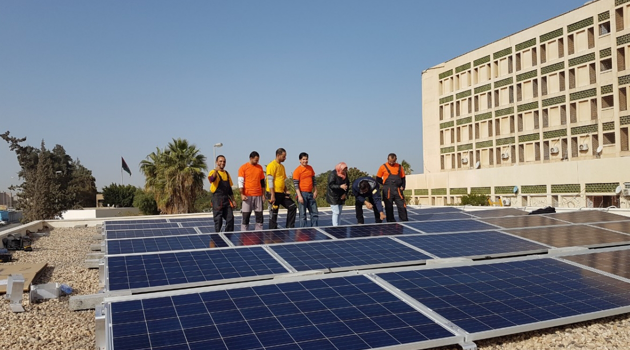By Noura Hamladj, UNDP Libya Country Director. Originally published here.
The call was grim and urgent. Worsening power cuts had knocked out electricity at a hospital in southern Libya, leaving kidney patients without the dialysis that was keeping them alive. After losing two patients, hospital staff phoned UNDP in despair. The answer was convincing: solar panels – a stable, clean and reliable energy supply.
Kidney disease is common in the Arab region, and power cuts have worsened steadily in Libya over the last six years. This was a disaster waiting to happen. UNDP was able to help, supporting the authorities to improve access to basic services through ensuring constant and cost-effective access to electricity, while also mitigating the impact of climate change and advancing multiple Sustainable Development Goals, in a country with plenty of sun.
Since a popular uprising in 2011—and a general election that erupted into conflict in 2014—Libya has grown increasingly fragmented. The country now has several political forces, each backed by different militias and tribes.
Delivery of basic services such as power and water, health and sanitation, has in many instances failed. In 2016, some power cuts lasted as long as 48 hours.
Insecurity, violence, a sharp drop in per capita earnings, and a major cash shortage in the banking system worsened an already chaotic situation. Some 17.5 percent of Libyan hospitals are closed, while the rest function at a fraction of their former capacity. Nearly 560 schools have been damaged or closed, while 400,000 people are food insecure. UN agencies estimate 1.3 million people are in need of urgent humanitarian assistance.
Stabilizing this situation and maintaining public confidence in an evolving peace process, in this case, means supporting the Government of National Accord and municipalities to deliver the basic services Libyans need and expect. Stabilizing Libya means first and foremost access to health, education, water and electricity.





